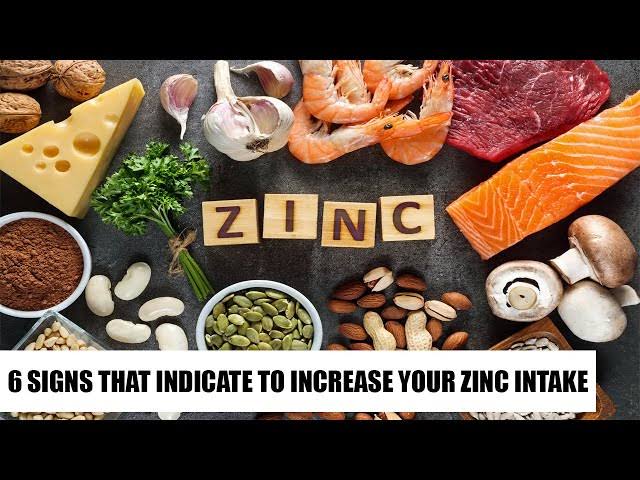
Our bodies require different types of minerals and vitamins in certain quantities to maintain the continuation of the internal function of the various organs and systems. When any nutrient is not provided to it in the required quantity, it leads to disorder and signs can appear in different parts of the body. Zinc is one of the minerals that the body needs. To activate more than 300 enzymes that build immunity, cell division, cell growth, proteins, and DNA synthesis, according to the Times of India website.
Zinc is found in limited quantities in the foods we eat, and our body cannot store this nutrient. This means that it must be consumed regularly. Men over 14 years old should consume 11 mg of zinc per day, while women over 14 years old need 8 mg. For pregnant women, the recommended daily intake of zinc is 11 mg and for breastfeeding women, it is 12 mg.
Here are some signs that you need to increase your zinc intake.
Slow wound healing
One of the critical roles of zinc is to maintain the health of your skin and to promote proper blood clotting but when you do not take zinc in an adequate amount, it makes it difficult for the wound to heal and acne breakouts also occur due to zinc deficiency.
Weight loss
Low zinc intake can also alter appetite leading to weight loss. It’s good to shed kilos when you’re overweight, but losing too much weight also leads to other health problems. Even when you’re trying to shed kilos, you need all kinds of micronutrients to keep your body healthy. On the internal functions of the body, weight loss caused by lack of nutrients is unhealthy.
hair loss
Stress, poor scalp hygiene, and insufficient intake of healthy nutrients can lead to hair loss. Hair breakage, hair loss, and thinning hair can also be a result of zinc deficiency.
Increasing your intake of this nutrient can help prevent hair loss and improve hair quality. Therefore, if you have been having hair problems lately, you should first increase your zinc intake.
Frequent disease
Zinc is an essential nutrient that helps build immunity and reduce the risk of chronic diseases. Low zinc intake can make you more susceptible to infection and disease.
If you get cold more often than other people and get sick a lot, it could be a sign of a zinc deficiency. Increasing your zinc intake can also help you recover from a cold faster than usual.
blurry vision
The mineral is also required for healthy vision. When our bodies don’t get enough zinc regularly, it affects vision, resulting in blurry vision and poor eyesight.
Adequate Zinc Eating Preserves Your Vision Zinc and Vitamin A are two nutrients that are essential for healthy vision.
brain fog
Do you feel overwhelmed or find it difficult to focus on your work a lot? If yes, check your daily zinc intake. Food that is low in zinc can lead to brain fog, making it difficult to focus on the task at hand. It can also be responsible for memory problems.






